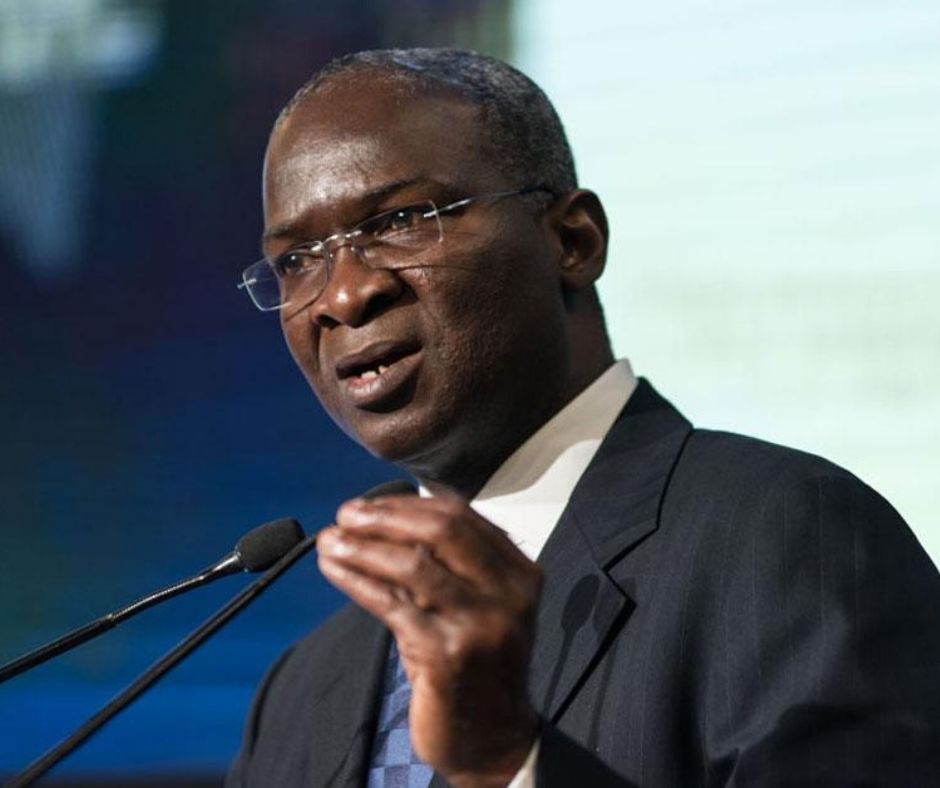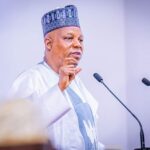Former Minister of Works and Housing, Babatunde Raji Fashola, SAN, on Wednesday said landlords are contributing to the rising inflation.
Speaking as a panelist at the ongoing 2024 Annual Directors’ Conference with the theme, “Good Governance as a catalyst for Economic Recovery, Growth and Development” organised by the Chartered Institute of Directors of Nigeria (CIoD), Fashola said rent is one factor contributing to inflation and the government doesn’t control that.
Governor Babajide Sanwo-Olu was among dignitaries at the two-day conference taking place at Eko Hotels.
- Drama as Akpabio cautions Senator Praising Bianca’s Beauty During Screening
- Do not lose guard in defence of democracy, Information Minister urges media
Daily Trust reports that Fashola who was Governor of Lagos State from 2007 to 2015 advocated for monthly collection of rent by landlords.
Despite the advocacy especially in Lagos, many landlords have rebuffed the idea even as some of them even insist on two-year and three-year rent.
According to him, it would be a big relief to the economy if the rent could be tied to the income of individuals.
He said it is a misnomer to demand for a rent that the tenant does not earn, describing it as a “fundamental economic mismatch.”
He said, “There is one problem – inflation. There is one component of inflation that many of us here can control. How many of us are landlords here? Just think about it, when we asked somebody to bring two or three-year rent and the person produces it, have you sat down to imagine the knock on effect on the entire economy – the prices of goods and services? And can we just close our eyes and imagine what happens if we took that away? If the person is just paying at the end of the month, what can we do to begin to lighten up that burden?
“At the end of the day that is a factor of inflation that the federal government does not control, if we could tie our rent to when our income comes in, it will be a big relief in this economy.
“If you ask somebody to go and bring two-year rent that is not earned, that he is going to earn in arrears, you want to collect it in advance and you expect goods and services to be cheap. It is a fundamental economic mismatch, think about it.”
Fashola stated that as a country, Nigeria has been “screwed down” with some “big knots.”
He said some policies have been legislated into the country’s body polity which has slowed down the progress of the country.
Some of the issues he highlighted is the constitutional provision for the President to appoint a Minister each from the 36 states of the federation, saying it is not a progressive legislation.
He also mentioned the issue of the public procurement Act which stipulates the release of 15% advance payment to a contractor handling a project before it was increased to 30 % recently, saying this is not enough.
Sanwo-Olu stated that as leaders, “we recognize that good governance is more than a moral obligation—it is an economic imperative. It is the key to unlocking our nation’s potential, attracting vital investment, and creating opportunities for our citizens. We know that transparency, accountability, and trust are the cornerstones of any thriving economy. History has shown that where these principles are absent, nations struggle.”
According to him, the consequences of poor governance could be seen in how corruption and inefficiency “stifle growth and erode trust in institutions. But history has also shown us that with strong governmental institutions, effective leadership, and an unwavering commitment to transparency, we can build a strong and thriving economy.”
“Here in Lagos State, we are deeply committed to embedding these values in every facet of our administration. We have launched reforms to strengthen institutions, promote transparency, and ensure accountability across sectors. Capacity-building initiatives equip our public servants with the skills needed to drive meaningful economic growth, and we are seeing the fruits of these efforts across the state.
“But government alone cannot achieve sustainable progress. The private sector plays a crucial role in advancing good governance. By adhering to ethical business practices, investing in sustainable initiatives, and insisting on transparency in governmental dealings, we can create an environment that fosters transparency and economic stability. Together, we can bridge the gap between intention and action.”

 Join Daily Trust WhatsApp Community For Quick Access To News and Happenings Around You.
Join Daily Trust WhatsApp Community For Quick Access To News and Happenings Around You.


